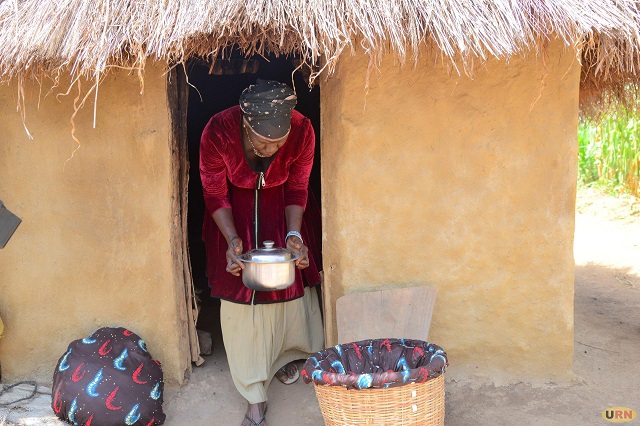
Yumbe, Uganda | THE INDEPENDENT | The innovative use of cooking baskets has made a significant contribution to environmental conservation efforts in the Bidibidi refugee settlement in Yumbe district. These baskets, crafted from cloth (kitenge), cotton wool for insulation, and the basket itself, are utilized to complete the cooking process, thereby conserving firewood.
This initiative is part of Lorena technology, implemented under the EU Emergency Trust Fund for Africa, Reduce Environmental Dependency Project (EUFT-RED). The project aims to increase environmental protection through the continued use of alternative energy sources in both refugee settlements and host communities across Uganda. It also seeks to reduce dependency on natural resources like fuelwood.
During a week-long tour to evaluate various environmental protection interventions funded by the European Union, Agnes Nyouka, a South Sudanese refugee, highlighted the benefits of the cooking basket. She mentioned that the basket has significantly reduced her firewood usage and saved her the trouble of traveling long distances to collect firewood.
Additionally, it has saved her money that would have been spent on purchasing firewood from the host communities. Nyouka noted that a bundle of firewood, which used to last only a few days, now lasts for a month, resulting in savings of up to 150,000 Shillings since May.
Nyouka explained, “Food is only put on fire for between 10 to 15 minutes. After it’s transferred to the basket where it boils to readiness. When it is kept in the basket, it remains hot for the entire day, therefore we don’t need to warm it again when children come back from school.”
The cooking basket complements the Lorena Stove, another firewood-saving initiative for both homes and larger institutions like schools. Albert Okwayi from Save the Children, the livelihoods program coordinator of the EUFT-RED implementing consortium, emphasized the direct impact of Lorena stoves and cooking baskets on wood fuel conservation.
He added that alongside the establishment of these technologies, both refugees and hosts have been heavily sensitized about environmental protection and the use of traditional stoves. The program has supported up to 44,000 homes across five districts and up to 27 institutions, including nine primary schools, one secondary school, and a prison site in Yumbe.
At Balakara Secondary School, one of the benefiting schools in Yumbe district, head teacher Amin Hamid reported significant savings on wood fuel expenses since the installation of the Lorena Stove. The school’s expenditure on wood fuel has reduced from 2.1 million shillings to 350,000 shillings per term.
Hamid added that the timely preparation of meals has improved students’ performance, as less time is wasted waiting for food or going home for lunch. “The food now comes timely because it is timely prepared, and the learners’ time for lessons is not wasted as it used to be before. It has even translated into performance. We were able to register a student in division one for the first time in the 2023 results, and we attribute it to the sanctioning of all senior four students to feed from school,” he stated.
Uganda lost an estimated 10 million hectares of tree cover between 2001 and 2023, translating to over 500,000 acres annually. According to a 2022 report by the United Nations High Commission for Refugees (UNHCR), up to 979,145 tons of wood fuel are consumed annually in refugee settlements and their buffer areas within 5 km of settlement boundaries.
*****
URN
 The Independent Uganda: You get the Truth we Pay the Price
The Independent Uganda: You get the Truth we Pay the Price



